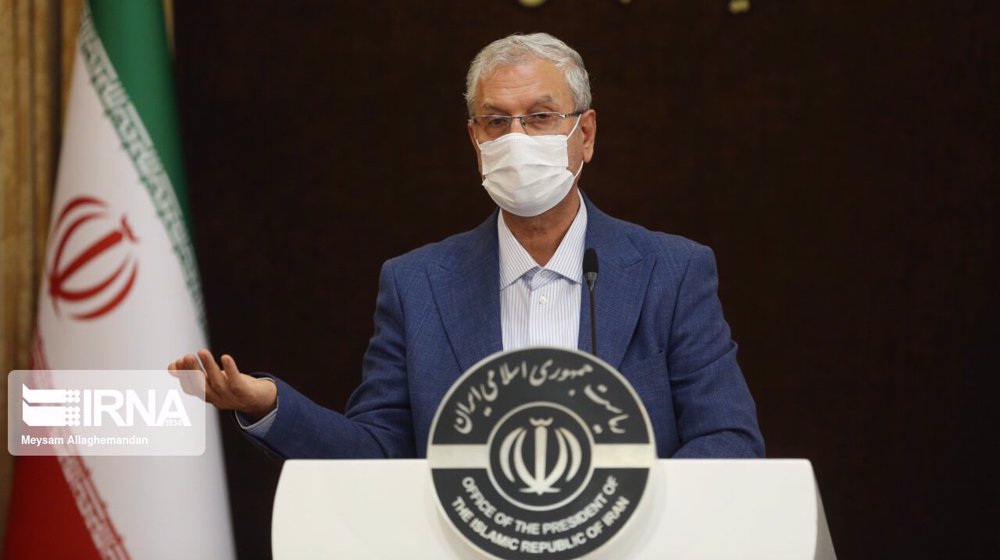Ali Rabiei, Iranian government’s spokesperson in a press conference on Tuesday, July 6, alleged that Israel was behind the attack on a building belonging to Atomic Energy Organization of Iran (AEOI) in Karaj, in Alborz province last month. He alleged that the attack was intended to sabotage the ongoing talks to revive the Joint Comprehensive Plan of Action (JCPOA) or the nuclear deal in Vienna.
Rabiei, however, contested the claims made in the Israeli media recently that the attack on June 23 had caused massive damage to the site. He claimed that the attack caused minor material damage and no fatalities. He added that the attack and the subsequent propaganda was carried out by the “Zionist regime” in order to “stop Iran and say the world has no need to negotiate” with it, he argued that “any act of sabotage so far has only strengthened our capabilities,” Iranian Press TV reported.
The attack on Karaj was the second such attack on an Iranian nuclear site this year. In April, the Natanz nuclear facility’s electric distribution system was attacked causing a blackout. The facility at Natanz in Iran’s Isfahan province has been subject to such attacks in the past too. It was attacked in July last year which had caused damage to one of its buildings.
Iran also blames Israel for the assassination of its nuclear scientist Mohsen Fakhrizadeh, the country’s topmost nuclear scientist in November last year.
Though Israel has neither denied nor accepted its involvement in the attacks, both the former and current prime ministers of Israel, Benjamin Netanyahu and Naftali Bennett, have openly opposed the resumption of talks to revive the 2015 nuclear deal. They have also publicly vowed to take all measures necessary to stop the Iranian nuclear program.
Fresh row over Iran’s nuclear program
There have been six rounds of talks in Vienna between Iran and other remaining signatories of the JCPOA. Despite claims of progress and positive response from the US, so far there has been no concrete development as the US refuses to lift all unilateral sanctions imposed by it on Iran. Meanwhile, a fresh row emerged between the parties during the talks on Tuesday following Iran’s announcement of producing enriched uranium at 20% purity. The Iranian envoy at Vienna Kazem Gharibabadi also claimed that Iran had informed the International Atomic Energy Agency (IAEA), UN nuclear watchdog, about the country’s move nine days earlier.
Three European signatories of the deal — the UK, France and Germany — issued a joint statement on Tuesday expressing “grave concerns” over Iran’s move to produce enriched uranium saying that “we strongly urge Iran to halt all activities in violation of the JCPOA.” The US also criticized the move calling it “nuclear brinkmanship.” However, Iran has maintained that as per the JCPOA provisions, it has every right to “take remedial measures” as long as the US doesn’t lift all sanctions.
Russian envoy to Vienna Mikhail Ulyanov reacted to Iran’s move calling it a “vicious circle.” He asserted that this can only end after the resumption of JCPOA from which the US under Donald Trump administration withdrew unilaterally and imposed sanctions against Iran in 2018.
The #IAEA reports that #Iran moves to production of uranium metal enriched up to 20%. The US in its turn maintains maximum pressure policy of D.Trump. The only way out of this vicious circle is resumption of #ViennaTalks without delay and full restoration of #JCPOA.
— Mikhail Ulyanov (@Amb_Ulyanov) July 6, 2021
After the conclusion of the 6th round of talks in Vienna on June 20, there have been no fresh developments. The Joe Biden administration, after declaring its intentions to rejoin the nuclear deal, has shown hesitancy in removing all the sanctions which is the primary condition put forth by Iran for its resumption of compliance to all JCPOA norms.





